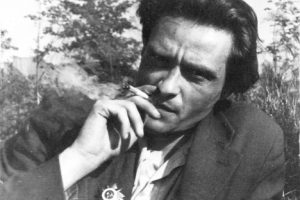
February 18th 2024 marked the centenary of the birth of Evald Ilyenkov (1924–1979) – a brilliant and influential Soviet philosopher whose most important early works remained unpublished during his lifetime (fig. 1). Two days before Ilyenkov’s 100th birthday, Russian opposition leader Alexei Navalny was found dead in a Siberian prison colony; that news overshadowed the little attention given to Ilyenkov’s anniversary in Russia. The manner in which Ilyenkov’s centenary and Navalny’s death were treated reflects memory culture in Putin’s Russia, where the legacies of Soviet Marxism are often suppressed by ultra-nationalist propaganda. Abroad, Ilyenkov’s prestige has seen a remarkable rise in recent years, accompanied by translations and new scholarship in, for example, Sweden, Ukraine, Peru, Turkey, Canada and Cuba. „Isabel Jacobs/Martin Küpper: Philosopher of the Ideal: EVALD ILYENKOV AT 100“ weiterlesen
